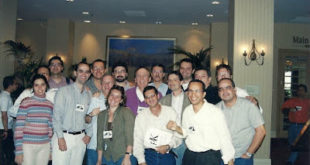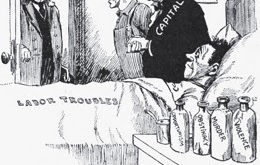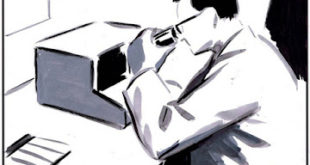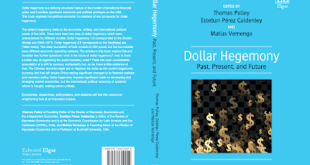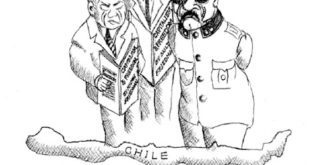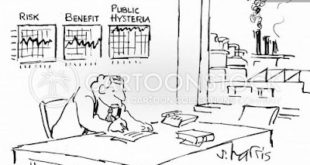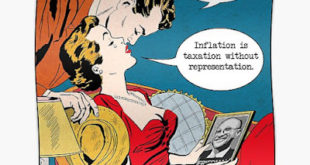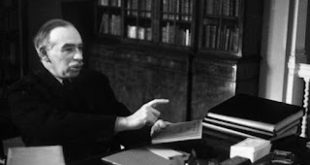Paper on Paul with Tom Palley and Jamie Galbraith published by ROKE. From the abstract:"Paul Davidson was a critical figure in the preservation of John Maynard Keynes’s ideas, sticking with them when they were out of fashion. He was also key to the survival of the Post Keynesian school. Davidson endorsed Keynes’s liquidity preference theory of interest, and he emphasized fundamental uncertainty as a central feature of economic reality, essential to making sense of a monetary economy. His...
Read More »Paul Davidson (1930-2024)
Paul (I'm next to him) and the Brazilians at the UMKC, PK Conference in 2002Paul has passed away a few days ago. He wasn't in good shape for a while, and this was expected. He lived a long and productive life. I wasn't personally close to him, even though I met him several times from the mid-1990s onward. He went to two conferences I co-organized at the Federal University in Rio, always with Louise, which was a central figure of Post Keynesian (PK) life, and basically run the Journal of Post...
Read More »Keynes’ denial of conflict: a reply to Professor Heise’s critique
Tom Palley reply to response about his paper on Keynes lack of understanding of class conflict. In many ways, this is how Tom discusses Keynes lack of understanding of old classical political economy. Tom is correct in pointing out that:"Kalecki (1933 [1971]) began the process of incorporating conflict into the Keynesian paradigm, but there is much more to be done regarding recognizing conflicts’ implications for economic theory and recognizing the multiple fora in which it appears."Of...
Read More »Dollar Hegemony and Argentina
[embedded content] First part of a two part interview with Anita Fuentes at Security in Context. The discussion on Argentina and Milei is in the next part. I'll post it as soon as it is up.
Read More »The theory of monetary disorder
“When I discovered that the economic order produced social disorder, they took away my scholarship.”New working paper by Tom Palley. From the abstract:This paper introduces the notion of monetary disorder. The underlying theory rests on a twin circuits view of the macro economy. The idea of monetary disorder has relevance for understanding the experience and consequences of the recent decade-long period of monetized large budget deficits and ultra-easy monetary policy. Current policy rests...
Read More »Dollar Hegemony, coming soon
The dollar's hegemony rests on the economic, military, and international political power of the USA. There have been two eras of dollar hegemony which were characterized by different models. Dollar hegemony 1.0 corresponded to the Bretton Woods era (1946-1971). Dollar hegemony 2.0 corresponds to the Neoliberal era (1980-today). The deep foundation of both models is USA power, but the two models have different economic operating systems. The articles in this book explore this and consider two...
Read More »The menace of the myth of General Pinochet’s Chilean economic miracle
By Thomas PalleySeptember 11, 2023, marks the fiftieth anniversary of General Pinochet’s military coup against Chilean President Salvador Allende. While it is now widely recognized that Pinochet authorized large-scale human rights abuses, there is an accompanying narrative that he also unleashed an economic miracle via embrace of Milton Friedman’s “Chicago Boys” vision of a market economy.The “Pinochet economic miracle” narrative is profoundly misleading. Worse yet, it is a political menace...
Read More »Hysteresis in economics
Hysteresis, not hysteria New paper by Thomas Palley. From the abstract:This paper argues for broadening the application of hysteresis to institutions, policy lock-in, psychology, identity, and economic ideas. Hysteresis is an element of historical processes, and the real world is historical. That explains why hysteresis is pervasive and important. Hysteresis should be a fundamental building block of political economy. Expanding its application in economics is both an opportunity and a...
Read More »The Forgotten Case Against Milton Friedman: Jacobin’s Interview with Tom Palley
In 1967, Milton Friedman launched a counterrevolution in economics that overturned the Keynesian theory of inflation. Three years later, economist James Tobin issued a powerful theoretical rebuttal — but in the economics mainstream, it’s been all but forgotten.Read full interview here.
Read More »The problem with Keynes’ General Theory: by Tom Palley
New working paper by Tom Palley. From the abstract:Keynes' General Theory was a massive step forward relative to classical economics, but it was also a step backward in its denial of the conflictual nature of capitalism. There is need to understand Keynes' technical contributions regarding the workings of monetary economies, but also need to understand the flaws within his thinking and the consequences thereof. Keynes made a fundamental contribution elucidating the mechanism of effective...
Read More » Heterodox
Heterodox


